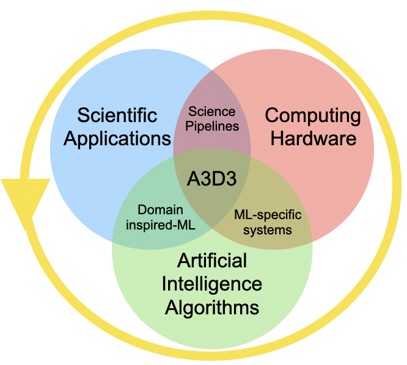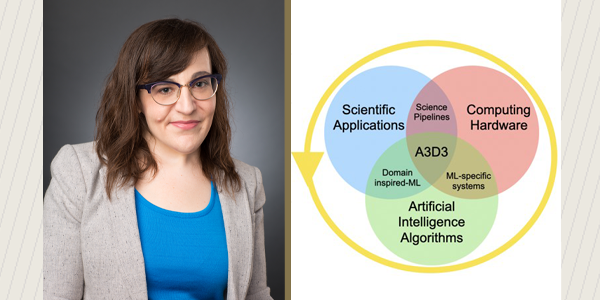
Amy Orsborn
Amy Orsborn, the Clare Booth Luce assistant professor, is part of a new $15 million, five-year effort to integrate artificial intelligence tools into the scientific research process in order to capitalize on the vast amounts of data now generated in experiments.
Dr. Orsborn holds appointments in both electrical and computer engineering and bioengineering.
On Sept. 28, the National Science Foundation announced the award, which will fund the Accelerated AI Algorithms for Data-Driven Discovery Institute — or A3D3 Institute — a partnership of nine universities, led by the University of Washington.
Shih-Chieh Hsu, a UW associate professor of physics, will lead the A3D3 Institute. In addition to Drs. Hsu and Orsborn, other UW faculty involved with the A3D3 Institute are Scott Hauck, professor of electrical and computer engineering and Eli Shlizerman, associate professor of applied mathematics and of electrical and computer engineering.
 A3D3 research will focus on developing AI-based algorithms that can perform real-time analyses of large datasets in three data-rich fields: multi-messenger astrophysics, high-energy particle physics and neuroscience.
A3D3 research will focus on developing AI-based algorithms that can perform real-time analyses of large datasets in three data-rich fields: multi-messenger astrophysics, high-energy particle physics and neuroscience.
In neuroscience, A3D3 efforts will center on understanding the complex neural networks within the human brain that govern motor functions and process sensory information.
“We can now measure more of the brain for longer periods of time. We need new tools to analyze these massive datasets,” said Dr. Orsborn, who is also a core staff scientist at the Washington National Primate Research Center. “Analyzing data quickly will also enable new experiments and therapies where we can intervene based on ongoing brain activity.”
Researchers need AI-based algorithms to analyze neural datasets in real time — such as electrical recordings from implanted electrodes and for a wide range of basic science studies. A3D3 researchers will focus on developing these types of tools, which can help decipher the neural underpinnings of behaviors like basic motor functions and responses to stimuli.
The A3D3 Institute — part of the NSF’s Harnessing the Data Revolution program — is a collaboration among researchers at the University of Washington; the University of Illinois at Urbana-Champaign; Duke University; the Massachusetts Institute of Technology; the University of Minnesota, Twin Cities; the California Institute of Technology; Purdue University; the University of California, San Diego; and the University of Wisconsin–Madison.
Adapted from a UW News article: Read more.



